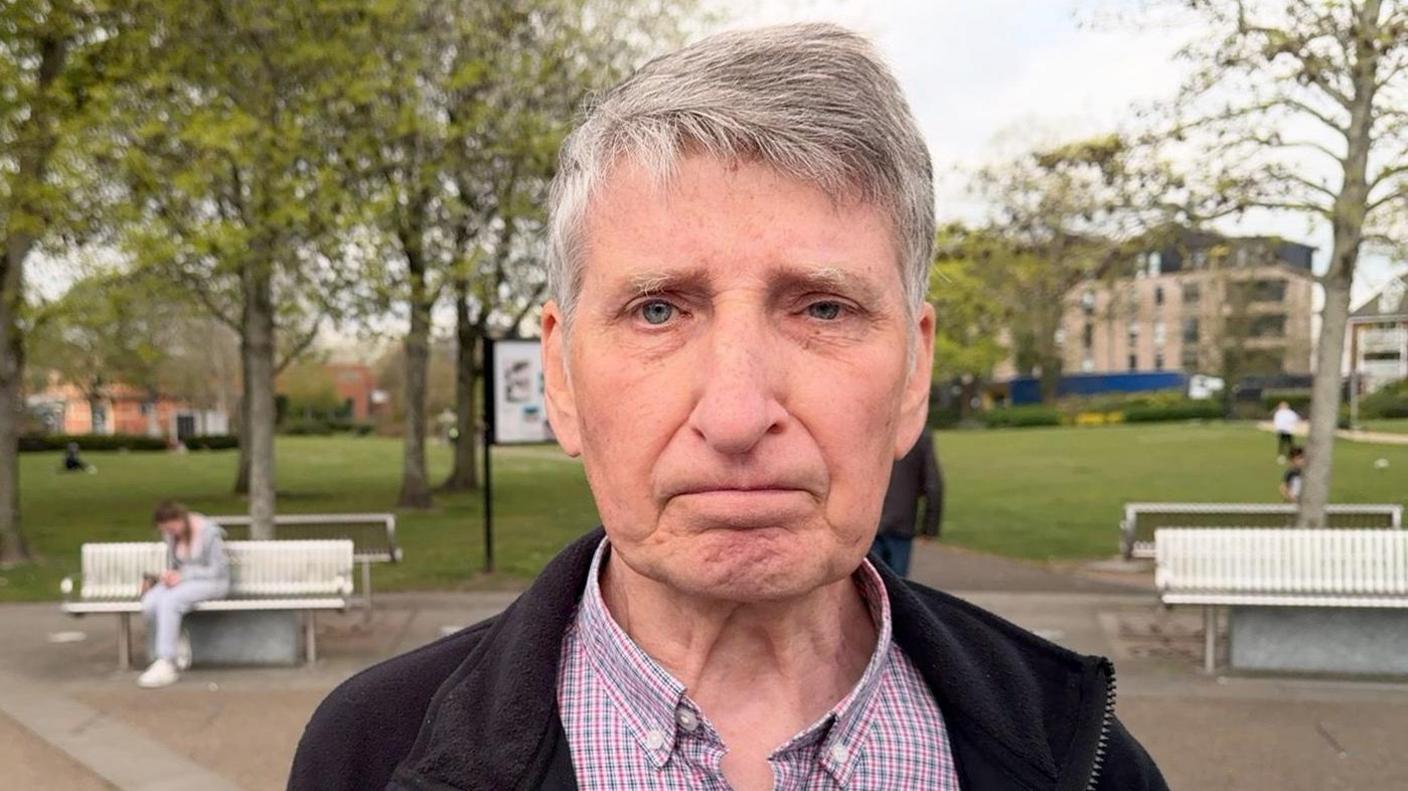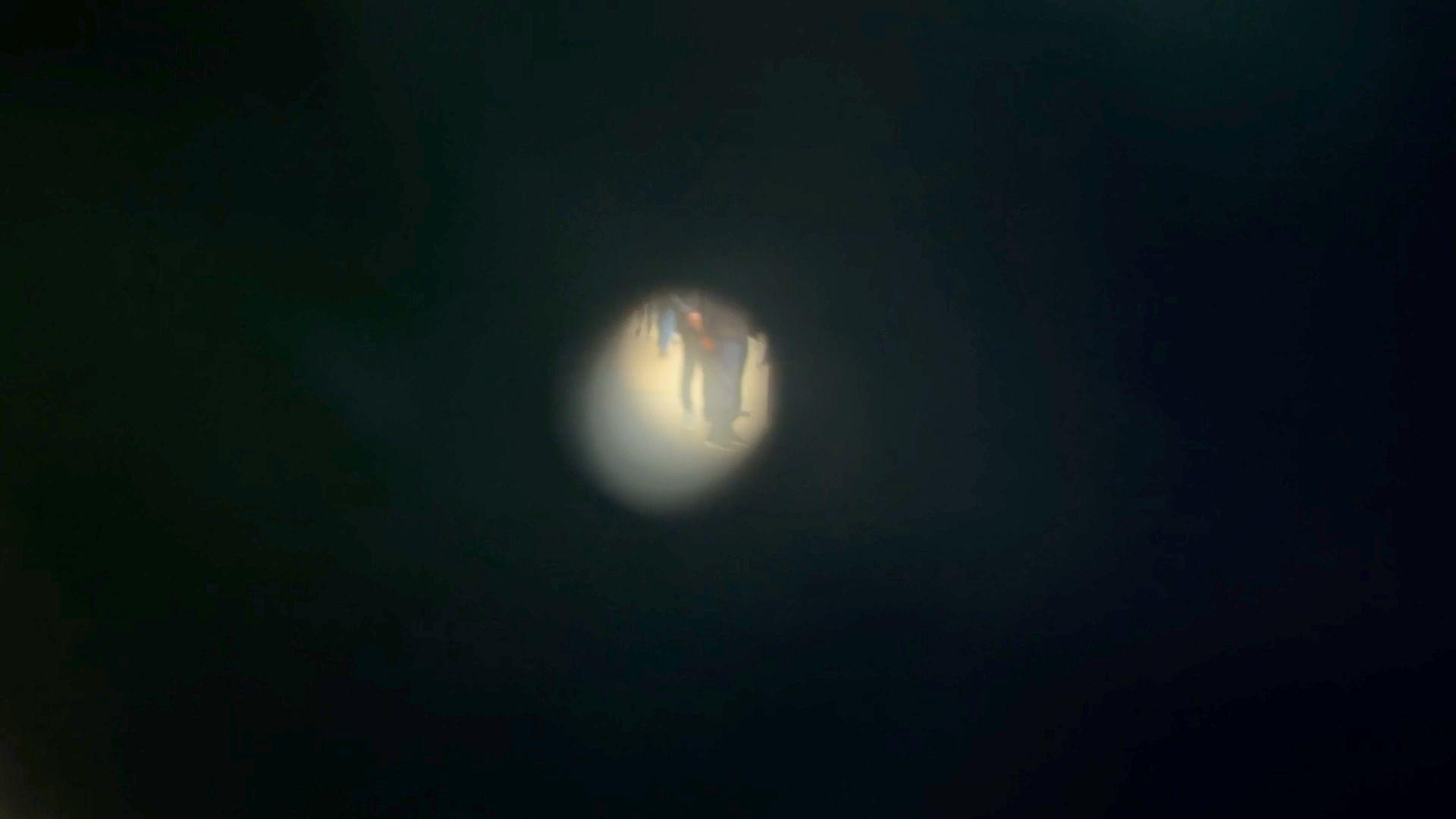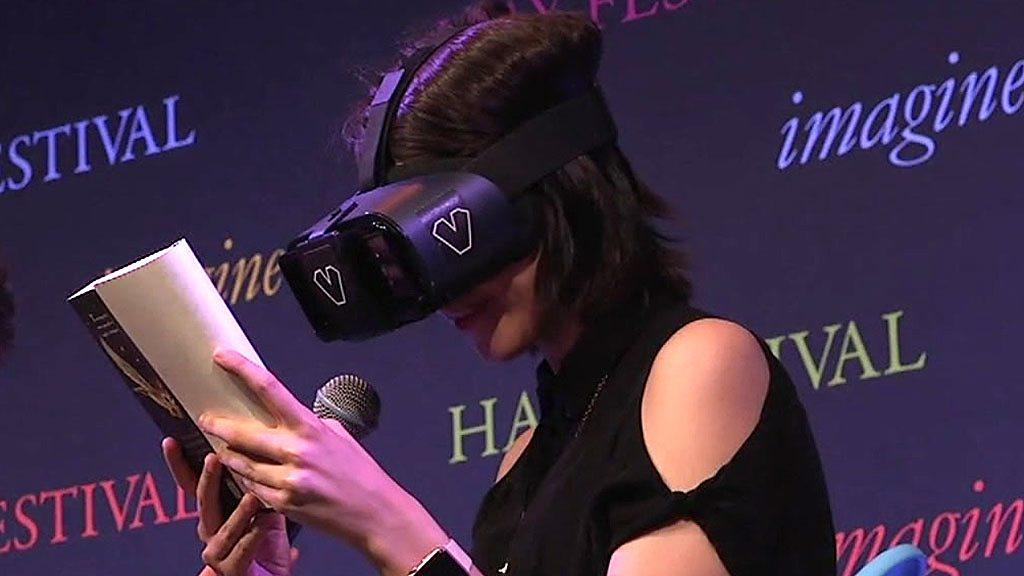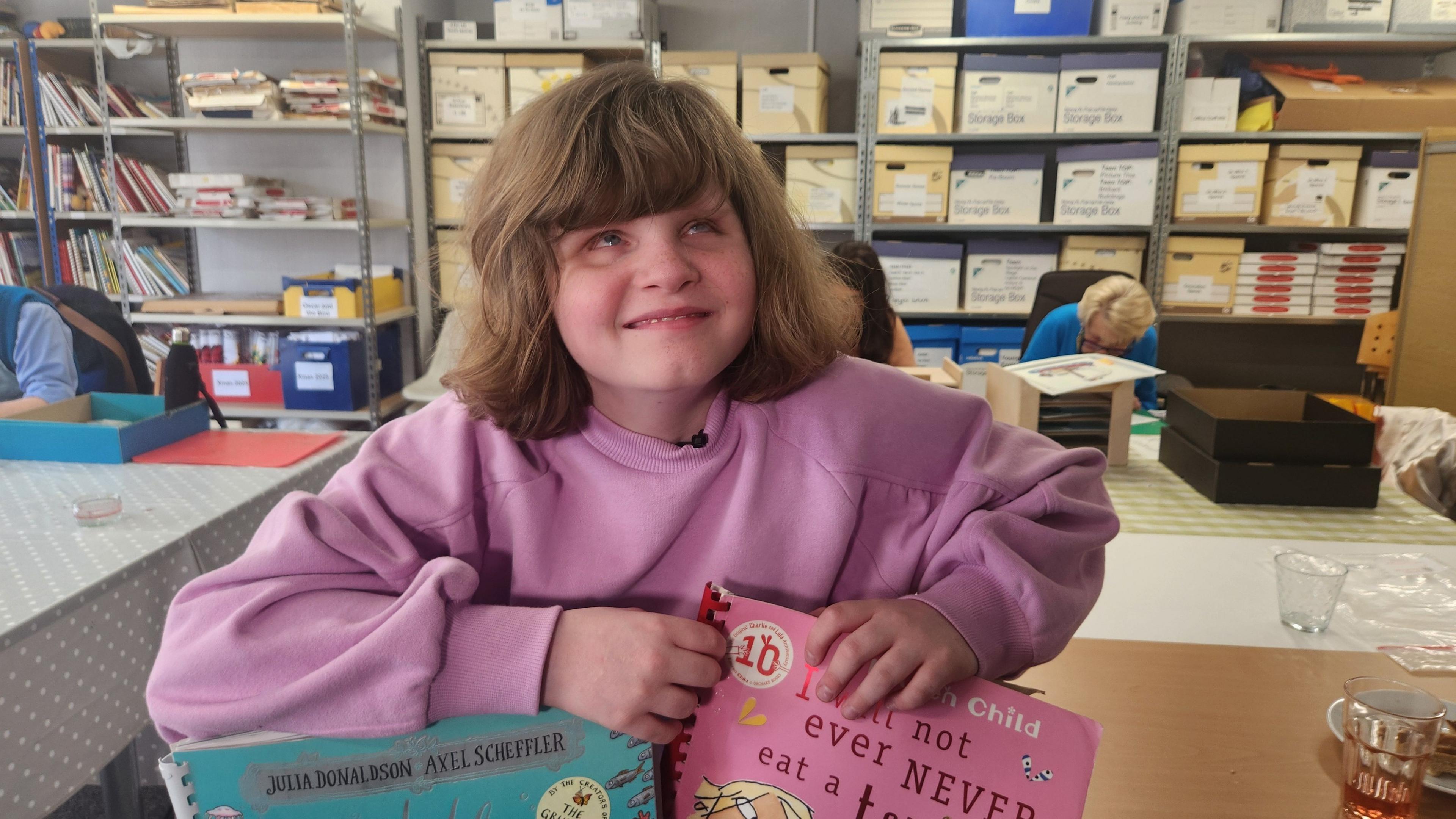'Blind goggles help highlight access issues'
The mayor's experience highlighted areas where the town could improve accessibility
- Published
"People who are fully sighted are actually blind to the needs of people with a visual impairment," a Hampshire mayor has said, adding "that needs to change".
The Mayor and Mayoress of Eastleigh have been shopping in the town's centre wearing goggles designed to impair their vision.
They want to improve accessibility for those living with a visual impairment (VI) and raise awareness among other town councils.
Dave and Jean Pragnell spent more than an hour shopping to try to understand what people living with VI experience.
The goggles they wore were designed to mimic sight loss caused by retinitis pigmentosa, a genetic condition also described as pin-hole vision.

Rob Hiley said there was a lot of work to be done in Eastleigh
Rob Hiley, who also accompanied the mayor on his shopping spree, was born with the condition but did not notice his vision deteriorate until he was 45.
Now 72, he said what he saw was similar to the tunnel-vision goggles worn by the mayor.
"I think it's fantastic and long overdue that people in authority actually take an interest in people with a visual impairment," he continued.
With the help of her grandchildren, the mayoress walked around town wearing goggles mimicking diabetic retinopathy - a complication of diabetes which damages the retina.
She described the experience as having "very blurry vision with large dark floaters".
"Eastleigh was not the easiest place for a person with a sight loss to move about as there are so many things on the pavements," she said.

A view through the goggles mimicking retinitis pigmentosa, also described as "pin-hole vision"
The goggles were supplied by local charity OpenSight which supports people in Hampshire with VI.
CEO Chris Dixon, who joined the mayor on his experience, said people living with VI find accessing the community a real challenge.
"It's really important for us to be able to demonstrate those challenges and to try and get that empathy and awareness for the community to try and help," he explained.
During the walk Mr Pragnell highlighted areas of navigation he found difficult, such as the lack of tactile pavements, which indicate crossings, and floral planters.
"They [planters] look great for people that can see but unfortunately they're right in the way of people with sight impairment. We need to rethink that sort of thing," he said.
He added all council officers needed to put the goggles on and experience what he did.
"Without it, they cannot do their jobs properly," he said.
Get in touch
Do you have a story BBC Hampshire & Isle of Wight should cover?
You can follow BBC Hampshire & Isle of Wight on Facebook, external, X, external, or Instagram, external.
More from the BBC
- Published10 June 2019

- Published28 June 2019

- Published13 April

- Published5 January

